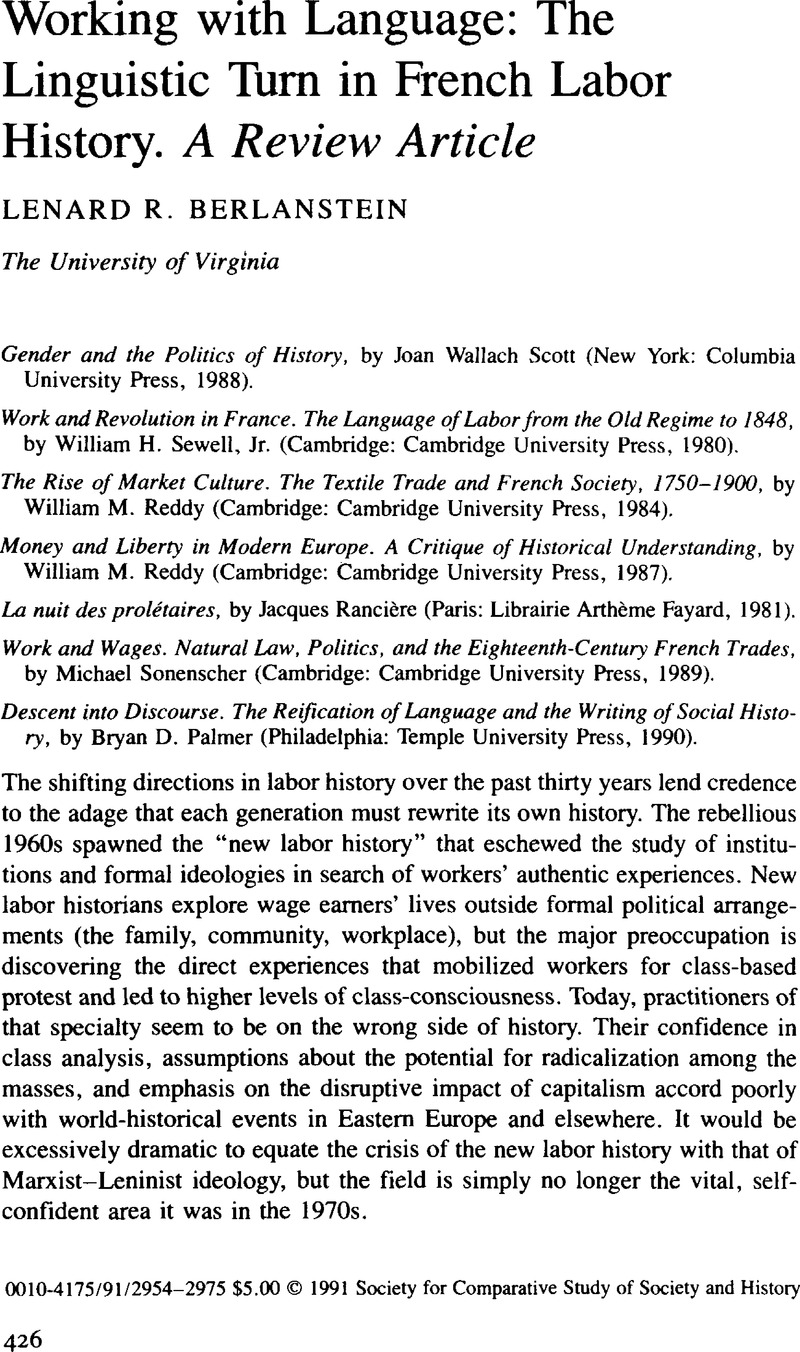Article contents
Working with Language: The Linguistic Turn in French Labor History. A Review Article
Published online by Cambridge University Press: 03 June 2009
Abstract

- Type
- CSSH Notes
- Information
- Copyright
- Copyright © Society for the Comparative Study of Society and History 1991
References
1 Scott, Joan Wallach, The Glassworkers of Carmaux. French Craftsmen and Political Action in a Nineteenth-Century City (Cambridge, Mass.: Harvard University Press, 1974),Google Scholar chs. 2, 4.
2 Ibid., chs. 4, 5.
3 Languages of Class: Studies In English Working Class History, 1832–1982 (Cambridge: Cambridge University Press, 1983).Google Scholar
4 For a useful explication of Geertz's thought, see Biersack, Aletta, “Local Knowledge, Local History: Geertz and Beyond,” in The New Cultural History, Hunt, Lynn, ed. (Berkeley: University of California Press, 1989), 72–96.Google Scholar
5 The work has recently been translated as The Nights of Labor. The Workers' Dream in Nineteenth-Century France, Drury, John, trans. (Philadelphia: Temple University Press,1989).Google Scholar The new version begins with an excellent introduction by Donald Reid.
6 Especially subject to Ranciere's critique is Bernard Moss, The Origins of the French Labor Movement, 1830–1914. The Socialism of Skilled Workers (Berkeley: University of California Press, 1976).Google Scholar
7 For a critical evaluation of Foucault as a historian of insanity, see Midelfort, H. C. Erik, “Madness and Civilization in Early Modern Europe: A Reappraisal of Michel Foucault,” in After the Reformation. Essays in Honor of J. H. Hexter, Malament, Barbara C., ed. (Philadelphia: University of Pennsylvania Press, 1980), 247–65.Google Scholar For an assessment of Foucault's approach to history, see Megill, Allan, “Foucault, Structuralism, and the Ends of History,” Journal of Modern History, 51 (1979), 451–503.CrossRefGoogle Scholar
8 The most thorough study of the creation of proletarian families is Michael Hanagan, Nascent Proletarians. Class Formation in Post-Revolutionary France (Oxford: Basil Blackwell, 1989).Google Scholar
9 As Sociology Meets History (Cambridge, Mass.: Harvard University Press, 1985), 1.Google Scholar
10 See Palmer's comments, particularly on Derrida's article, in “Like the Sound of the Sea Deep Within a Shell: Paul de Man's War,” Critical Inquiry, 14 (Spring 1988), 590–652.CrossRefGoogle Scholar
- 3
- Cited by




